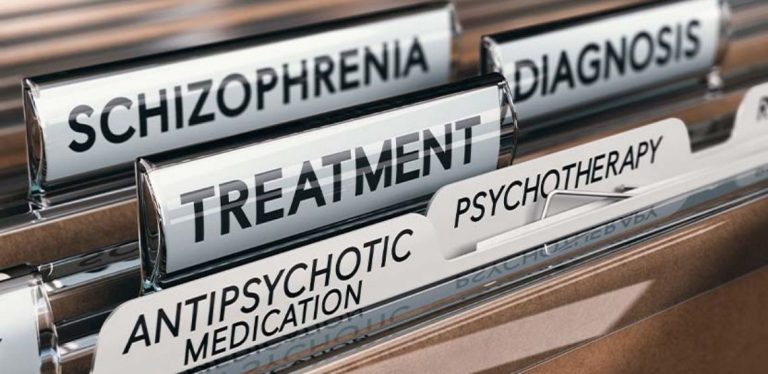Schizophrenia Treatment Options
Schizophrenia is a mental illness categorized by a series of symptoms. To help, there's UZEDY (risperidone), a prescription medication used to treat schizophrenia.
UZEDY (Risperidone)
UZEDY works by blocking dopamine receptors in the brain, particularly the D2 receptor. Dopamine is a neurotransmitter that plays a key role in mood regulation, motivation, and reward pathways. By blocking these receptors, UZEDY helps to reduce symptoms of psychosis and mood disturbances.
In addition to dopamine receptors, UZEDY also affects serotonin receptors, particularly the 5-HT2A receptor. This action can help improve mood and decrease anxiety, contributing to its overall effectiveness in managing symptoms of various psychiatric disorders.
Related Search Topics (Ads)
Schizophrenia Treatment
Most often, someone suffering from schizophrenia will have to take medication. Namely, these medications are part of the broad pharmaceutical category of “antipsychotics.” How these medications work will depend on the exact chemistry behind the prescription.
Do You Need Medication to Treat Schizophrenia?
Unfortunately, schizophrenia is a condition that requires lifelong treatment. This is even true when symptoms are not being exhibited. Treatments are there to help you manage the disease at all stages of the illness.
They work by interacting with transmitters that promote symptoms. Namely, this works by blocking a specific dopamine receptor. These generally teach positive symptoms.
These can be administered orally, through pills, or through regular injections. There are no “perfect fit” treatments and it often takes some time to experiment with finding medication and dosage, which is right for you.
Doctors often start at the lowest dose possible and work their way up until symptom management is optimized.
Schizophrenia Symptoms
Everyone experiences the disease in very different ways. Symptoms can generally be broken down into three categories:
Psychotic Symptoms
These are sometimes referred to as “positive symptoms,” as they are behaviors and feelings which are added to normal behavior.
These can be things such as perceptual abnormalities like visual hallucinations, hearing voices, or irrational thoughts (such as thinking you are being hunted down or have magical powers).
Negative Symptoms
Negative symptoms refer to significant “losses” in behaviors. These would be things such as loss of motivation, emotional expression, happiness, or interest in daily life—many people experiencing these symptoms exhibit “flat affect”, which is reduced emotional expressions.
At the most extreme, victims may be catatonic, meaning they are virtually unmoving and still.
Cognitive Symptoms
Schizophrenia can impact mental performance. Cognitive disruptions to attention, concentration and memory can range in severity. These are also common side effects of many medical treatments.
What Causes Schizophrenia?
While there is a lot of research exploring the underlying mechanisms of schizophrenia, the exact causes of the disease are poorly understood. There is a lot of evidence that suggests the culprit is a mix of environmental and genetic influences.
Research also indicates that there is a strong hereditary component, meaning you are more likely to suffer from schizophrenia if one of your close relatives has it.
Can You Cure Schizophrenia?
As of yet, there are no cures for schizophrenia. Medical advancements have created pharmaceutical interventions and therapeutic techniques that allow one to manage their symptoms.
What to Expect
Side effects of antipsychotics range in severity and affect everyone differently. Some of the most common side effects include:
- Drowsiness.
- Dizziness.
- Restlessness.
- Constipation.
- Seizures.
- Low blood pressure.
- Nausea.
- Blurred vision.
- Movement disorders.
Please keep in mind that antipsychotics, like many other psychological medications, take some time to work properly. It can be weeks before you experience any changes in feeling or behavior.
Second-Generation Antipsychotics
These medications tend to have less intense side effects in comparison to earlier treatments:
- Aripiprazole (Abilify).
- Asenapine (Saphris).
- Brexpiprazole (Rexulti).
- Cariprazine (Vraylar).
- Clozapine (Clozaril).
First-Generation Antipsychotics
These medications are often replaced by second-generation varieties. These medications are stronger and often come with serious, irreversible side effects:
- Chlorpromazine.
- Fluphenazine.
- Haloperidol.
- Perphenazine.
Non-Pharmaceutical Approaches
While medication is generally recommended, there are some other psychosocial interventions that are used in combination. These can include different things, such as general therapy, social skills training and family therapy.
These therapies help teach individuals how to recognize the signs their symptoms are coming back and teach them and their loved ones how to handle the situation.
Additional therapies teach individuals how to manage their symptoms so that they can function in everyday society. It emphasizes how to maintain a job and find employment.
What to Do If You Believe You Are Struggling With Schizophrenia
If you believe that you or a loved one is suffering from schizophrenia, contact a medical professional immediately. Receiving a definitive diagnosis from a psychologist or psychiatrist is a crucial step in receiving the treatment you need.
They will be able to formally answer any questions or concerns you have regarding your treatment options. They are also the resource to use when you encounter problems with your current treatment plans.

